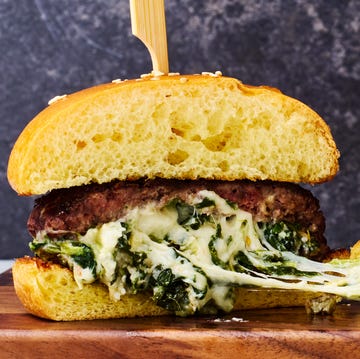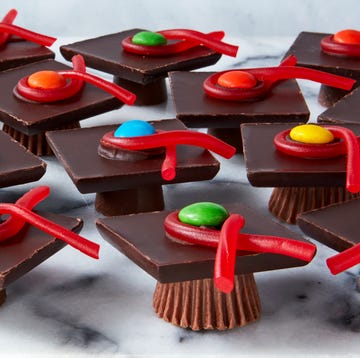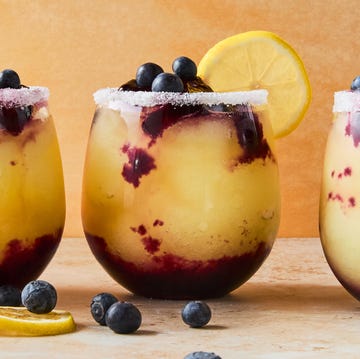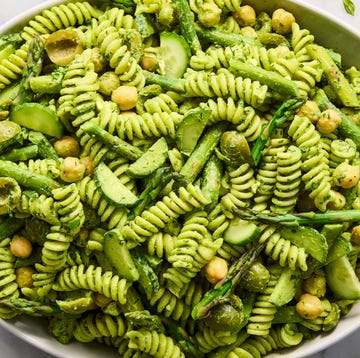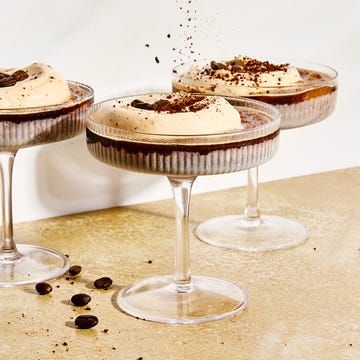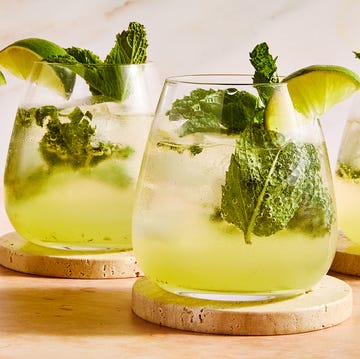My small studio apartment be damned, 2025 will find me becoming a top-tier dinner party host! Inspired by my patron saints of hosting—drag queens and Ina Garten—as well as the rising trend of dinner parties, I'm committed to gathering and feeding all those near and dear to me while also stretching my culinary muscles in the process. You know what I love even more though? Being invited to a dinner party. That being said, I've always wondered how to keep the invites coming in and what makes for a top-tier guest.
I chalk this up to having both very Philadelphian and very Southern branches of my extended family (read: very opinionated!). I've seen first-hand how awkward situations can arise from a dinner party where guests and hosts clash over expectations versus reality. The subtle glances across the table over who brought the lukewarm lima beans or whisperings of "She put WHAT in the gravy?" are all too familiar—and entirely avoidable.
To bring us all smoother sailing, I turned to seasoned dinner hosts and chefs to find out what they wish their guests knew before showing up to a dinner party. Here’s what they had to say:
Don't Bring Food Unless That's Part Of The Plan
"If I say I'm all set on food, I really do mean it!" says ButcherBox's chef-in-residence Ashley Lonsdale. "If a guest brings an appetizer that needs plating—I'm grateful for it, I promise—it might require my attention at the beginning of the dinner, which is always the most frenetic."
Lonsdale adds that you should always ask the host what they need and really listen, with one caveat: "More dessert is always welcome in my house!"
One hosting expert, who wished to remain anonymous to protect the identity and feelings of one (well-meaning) guest, reflected on this guest's habit of arriving with superfluous dishes. "[He] always brings beans because he thinks they go with everything, and I disagree," the expert, er, dishes. But banning beans wasn't enough! "When I asked him to bring something else, he brought fondue, and it literally ruined Thanksgiving." So don't be that guy: keep the uninvited fondue pot at home.
Gifts Are Always Welcome
By and large, dinner party hosts welcome gifts with open arms. Who wouldn't? But there are a few things to remember when picking a gift that's considerate and doesn't add more work onto (or better yet, takes something off of) your host's plate. "Among the most thoughtful gifts include something to enjoy for breakfast the next day," says Lisa Strangis, hospitality expert and frequent host of large-scale food and wine parties at her home in Los Angeles. "Who wouldn’t love a couple of croissants or muffins to look forward to over coffee while tackling the morning cleanup?"
In fact, the less glamorous gifts are often the best, says Strangis, who loves when guests think to bring bags of ice to her parties.
The experts overwhelmingly agree that while bringing dishes is often unnecessary, food gifts are always appreciated. "I had a friend bring over tart vinegar flavors I had yet to try, which was very sweet," says Lonsdale. "The best was probably balls of peanut butter chocolate chip cookie dough, which was handed to me covertly and offered as dessert for the guests that evening—or just for future me."
But Think Before You Bring Flowers
When in doubt, a gift that's not edible is always a safe bet, especially when a host's fridge and freezer are likely at max capacity. "Flowers are always a hit, but only if the gifter is prepared to arrange them," Lonsdale says.
Strangis agrees that flowers can be a mixed bag, especially when there are too many (literal) cooks in the kitchen. "[Uncut flowers] seem to ambush the rhythm of my kitchen," she says. " I have to stop what I’m doing, find the right vase, trim, and assemble them—all while making small talk. I’m pretty terrible at arranging flowers, too!" On the other hand, she says, completed arrangements and potted plants like orchids are always a hit for hosts.
When It Comes To Potlucks, Let The Host Handle The Main
You might wonder about potlucks, where dishes are divided between guests and the host. Unless specified otherwise, it's safe to assume that the host will handle the mains, especially since they're the ones managing all that precious oven space. "If I'm hosting a potluck-style dinner, I will handle the main dishes, like a pasture-raised roast chicken or a side of wild-caught salmon," says Lonsdale, who then offers guests to bring sides to complement the dish.
That being said, if you have family members like mine (ones who won't take no for an answer regarding bringing multiple, often disparate dishes), communicating the kitchen real estate is key, with a priority on items that are easy to reheat or don't require further prep. "For instance, if you’ll be grilling outside most of the time, let guests know what else is being cooked so they can prepare their dishes accordingly," says Strangis, who opts for letting guests know ahead of time if ovens and kitchen tools will be occupied.
"Most guests will choose something ready to serve, but some may look forward to collaborating or finishing their dish in your kitchen," she adds. Among the stress and even chaos of your kitchen, some magic can happen. "A lot of my friends come with just a few base ingredients, and we end up improvising together," Strangis says. "I always learn something new when someone else takes over my kitchen!
Keep The Theme In Mind
If you prefer to host more on the easy-breezy side of things, assigning a theme to your dinner is a simple approach to coordinating dishes with guests, says Strangis, who adds that the more specific a theme is, the better. "If you’re hosting a taco night," says Strangis, "Clarify that you’re preparing the taco filling and ask others to bring complementary items—like corn tortillas, fresh guacamole, [or] homemade salsa."
Consider Refrigeration & Prep Space
While it might be front of mind to remember not to overload an oven, it's equally as important to consider that most other parts of the kitchen will be overwhelmingly stacked with dishes, or plugs will be in short supply. "One Christmas, a guest contributed three dozen homemade lemon bars, a delicious gesture, but they were already cut and arranged on a massive platter," Strangis reflects. "We had zero room in the refrigerator, and no time to transfer it into something else, so they sat outside in the chill night air until dessert. I felt terrible that she had gone through the effort of baking a quality dessert from scratch, only for it to be tucked out of sight in less-than-ideal conditions."
And that fancy cake platter you brought? Strangis says it can be an added stressor to serve, clean, and return those same items the night of, so keep that in mind when bringing containers and platters.
The Hosts' Biggest Tip? Enjoy Yourself
Corny things can also be true! Ultimately, it's not what's on the table at a dinner party. It's who is gathered around the table and the memories that are made. "My biggest tip is to focus on the heart and soul of your dinner party, which is gathering people together to eat and enjoy each other's company," says Lonsdale. "Keeping things simple will ensure that you enjoy your dinner party along with your guests and, maybe, more importantly, enjoy it enough to host again!"
Strangis mentions that she likes to invite at least a few guests who can help by coming early and warming up the crowd, so to speak. Or, if you're not a social butterfly, you can bring along something everyone can enjoy, like one guest of Strangis' who brought a loaf of Poilâne sourdough that also doubled as a conversation starter. "Our guest was new to our city and new to our lives—he had just moved from Paris—so it became a great icebreaker," says Strangis. "He told us about his memories of growing up in France, which made for instant, easy table conversation." See? Breaking bread can be both literal and figurative.


